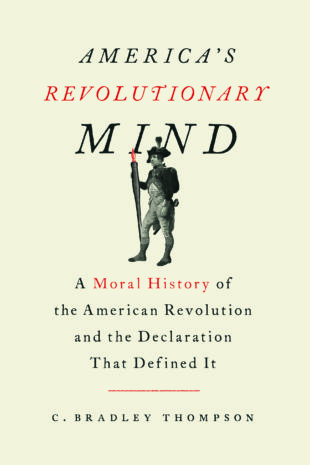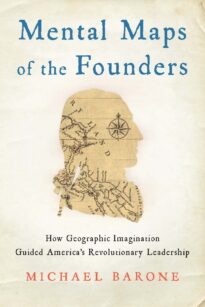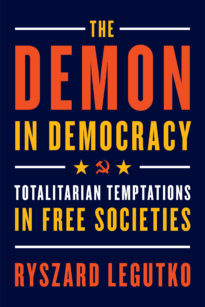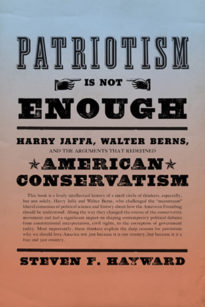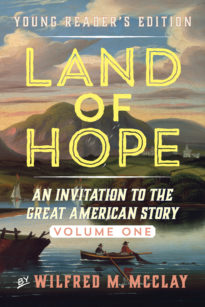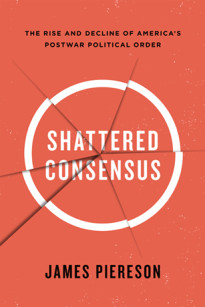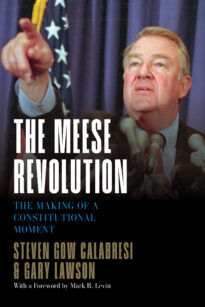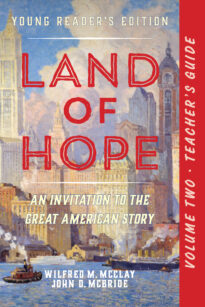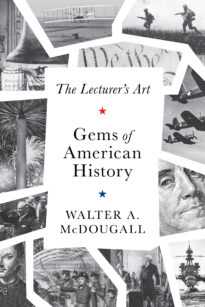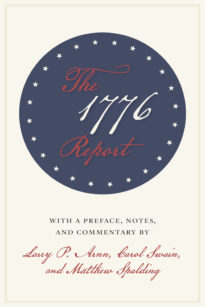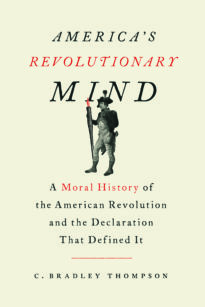“By what means, this great and important Alteration in the religious, Moral, political and Social Character of the People of thirteen Colonies, all distinct, unconnected and independent of each other, was begun, pursued and accomplished, it is surely interesting to Humanity to investigate, and perpetuate to Posterity.”
—John Adams, 1818
The American Revolution is the most important event in American history. It announced the birth of a new nation, defined the noblest ideals and aspirations of the American people, created written constitutions and republican governments, and reformed laws and remodeled institutions. According to James Madison, America’s revolutionary leaders “accomplished a revolution which has no parallel in the annals of human society: They reared the fabrics of governments which have no model on the face of the globe.”
This transformative event created a new kind of society unlike any other that had ever existed. Our present-day beliefs in equality, freedom, rights, justice, the rule of law, and constitutionalism were born during the Revolutionary era and expressed in its noblest symbol, the Declaration of Independence. In countless ways, the world in which we live was shaped by the ideas and actions of 1776.
This is why Americans are endlessly fascinated by the history of their Revolution. To meet popular demand, successive generations of scholars going back to the event itself have been inspired to research and write on this momentous event, which raises the obvious question: is there anything original left to say about the American Revolution and its causes? The answer is, in my view, unequivocally yes. Historians have only scratched the surface, I now believe, in their understanding of its nature and meaning. As a longtime scholar of the American Revolution, I only recently came to this startling—if not controversial—conclusion after reading and reflecting on four remarkable statements about the Revolution and its causes by four of its most articulate spokesmen: John Adams, Thomas Paine, Joel Barlow, and Thomas Jefferson.
During his retirement years, John Adams thought a good deal about the origin and meaning of the American Revolution. In a fascinating letter written to Thomas Jefferson in 1815, he asked a simple question: “What do we mean by the Revolution?” Surely not the war, he answered rhetorically. “That was no part of the Revolution,” he declared. Rather, the war “was only an Effect and Consequence” of the Revolution. The true Revolution, he continued, “was in the Minds of the People, and this was effected . . . in the course of fifteen years before a drop of blood was shed at Lexington.” Three years later, Adams suggested again that the “real American Revolution” was represented by a “radical change in the principles, opinions, sentiments, and affections” of the American people. The former president was suggesting in these letters that the root cause of the American Revolution was to be found in a radical change in the colonists’ moral reasoning and political principles. For Adams, something important and transformative happened in the inner lives of people’s minds, beliefs, and sensibilities in the years just before and just after the passage of the Stamp Act. Adams’s comments raise obvious questions: how and why was the American mind revolutionized in the years before 1776, and, more particularly, what new moral ideas defined America’s emerging revolutionary consciousness? Adams considered these questions “surely interesting to humanity to investigate, and perpetuate to posterity.”
Like Adams, Thomas Paine also understood that a revolutionary transformation had taken place in the American consciousness in the years leading up to 1776. As Paine put it so strikingly in Common Sense, “a new æra for politics is struck; a new method of thinking hath arisen.” He described this “new method of thinking” in an extraordinary letter to the French philosophe the Abbé Raynal. Paine told the French cleric that the American “style and manner of thinking ha[d] undergone a revolution, more extraordinary than the political revolution of the country.” “We see with other eyes,” he explained. “we hear with other ears; and think with other thoughts, than those we formerly used.” This revolution of the mind transformed the colonists into “another people.” Paine identified the precise meaning of that revolution when he wrote in Rights of Man: “the Independence of America” was “accompanied by a revolution in the principles and practice of governments.” The Americans had done something, he continued, that no other people in history had ever achieved: they founded their new governments “on a moral theory . . . on the indefeasible, hereditary rights of man.” The discovery, development, and adoption of that “moral theory” by the American people in the years before 1776 is the embodiment of the “real” revolution described by Adams.
But what exactly was this “new method of thinking” and the new “moral theory” associated with the American Revolution? How and why did colonial Americans develop a “moral theory” about the “indefeasible, hereditary rights of man”?
In 1792, Joel Barlow, the American poet, diplomat, and politician, announced in his Advice to the Privileged Orders, in the Several States of Europe, Resulting from the Necessity and Propriety of a General Revolution in the Principle of Government, one of the first American books on the French Revolution, that the greatest difference between free and unfree peoples had nothing to do with an “original capacity of the mind” but was instead connected to a certain “habit of thinking.” Man’s “second nature” as shaped by ideas and experience, he continued, was “the only foundation” on which to build a free and just society. Men will become free and equal when they think themselves so, and they will likewise obey rulers if they think them genuinely superior in some way. Men accept what they believe, said Barlow, which means that by focusing on the “astonishing effects that are wrought in the world by the habit of thinking” it might be possible to change a whole political system by changing the way men think.
This is precisely what happened in Britain’s American colonies in the years after 1761. Under the pressure of events first precipitated by the Stamp Act, the colonists developed certain moral and political principles during the years of the imperial crisis that became a “habit of thinking” by the mid-1770s. In the New World, Barlow claimed, “the science of liberty is universally understood, felt and practiced,” which means the Americans’ “deep-rooted and inveterate habit of thinking is, that all men are equal in their rights.” The habit of thinking developed by the colonists after the end of the Seven Years’ War was rooted in that “science of liberty,” a notion that sums up perfectly both the method of reasoning and the substance of the American mind as it came to exist in 1776.
Finally, on May 8, 1825, Thomas Jefferson wrote a now well-known letter to Henry Lee in which he described the Declaration of Independence as “an expression of the American mind.” These are the most important words ever written about the Declaration, and they provide an important key to unlocking its deepest meaning. Through this felicitous phrase, the Declaration can now be seen as the fulfillment and symbol of Adams’s “real” revolution, the revolution that occurred in the minds of the American people. The Declaration brought together ideas and assumptions that had hitherto been incomplete, unclear, or discordant during the years of the imperial crisis. Understanding how and why Jefferson and his fellow revolutionaries discovered, developed, and understood the Declaration’s self-evident truths opens a new pathway to understanding the American Revolution itself.
After thinking about these extraordinary statements by Adams, Paine, Barlow, and Jefferson, I was struck by how little is actually known about the most salient causes of the American Revolution. Previous generations of scholars have neglected almost entirely what many leading eighteenth-century Americans considered the generative mainspring of the Revolution, namely, its moral causes. When we stitch together Adams’s claim that the “real” American Revolution was in the “minds of the People,” Paine’s argument that the Revolution was based on a new “moral theory,” Barlow’s announcement that the moral principle of equal rights had become a “habit of thinking” in the American colonies, and Jefferson’s description of the Declaration as an “expression of the American mind,” we have important clues to help us uncover the Revolution’s deepest causes and consequences and hence its ultimate meaning.
